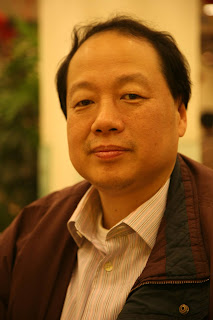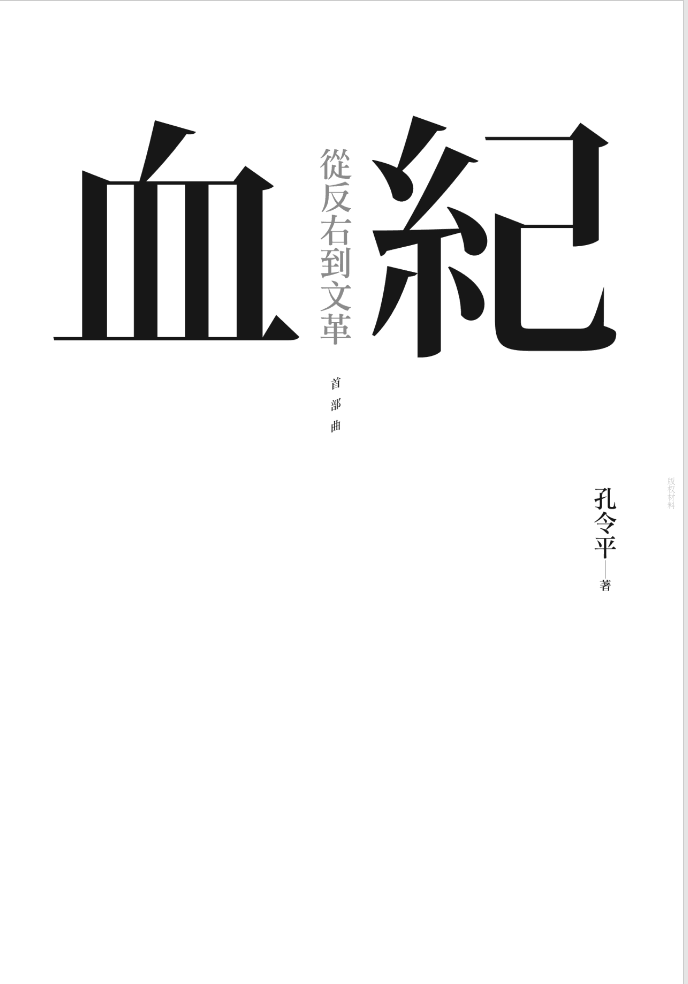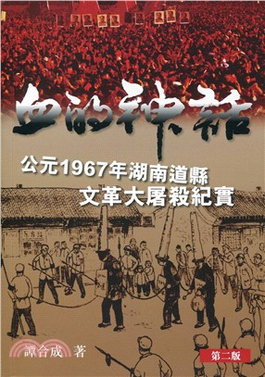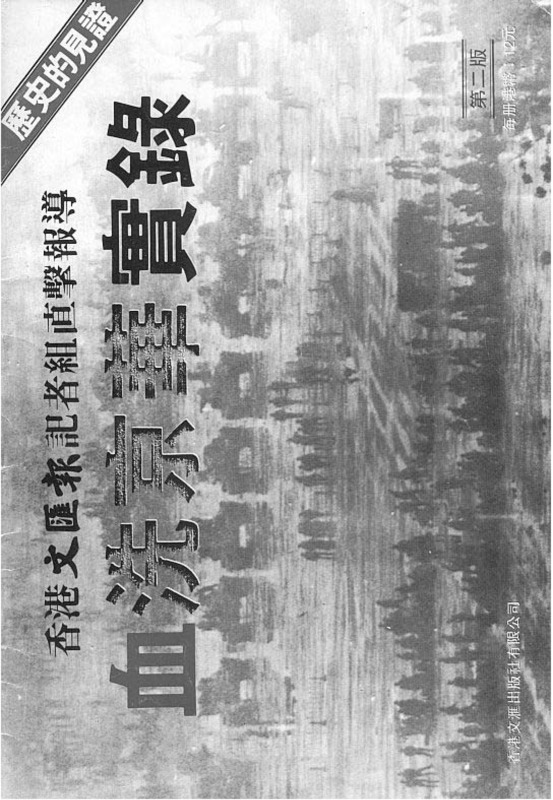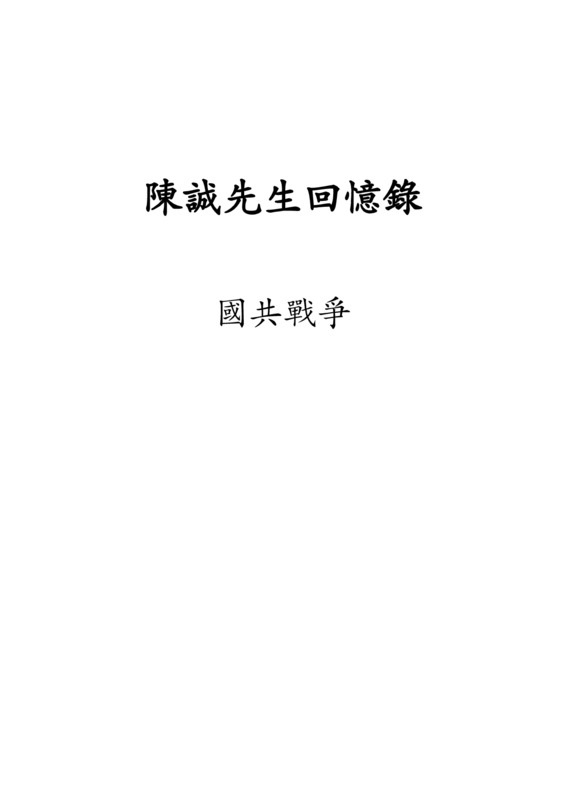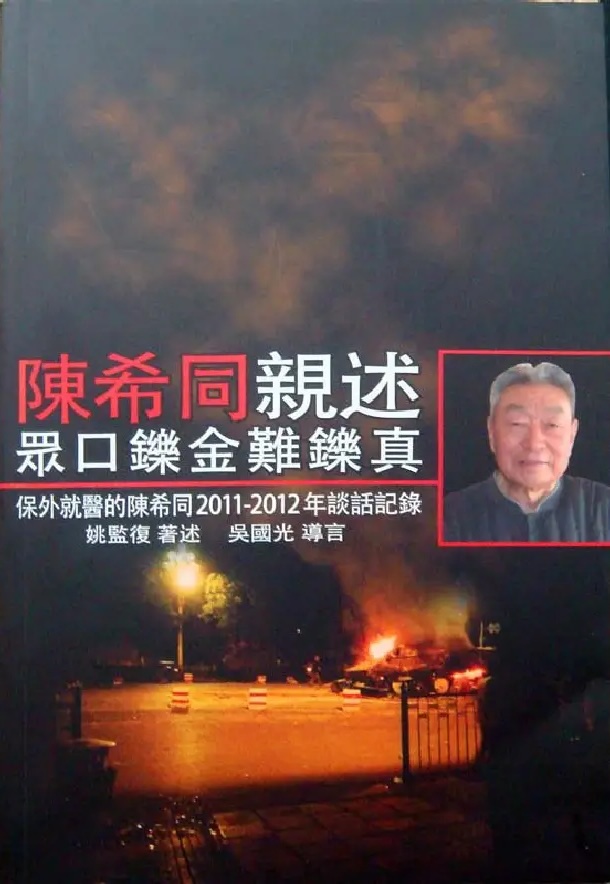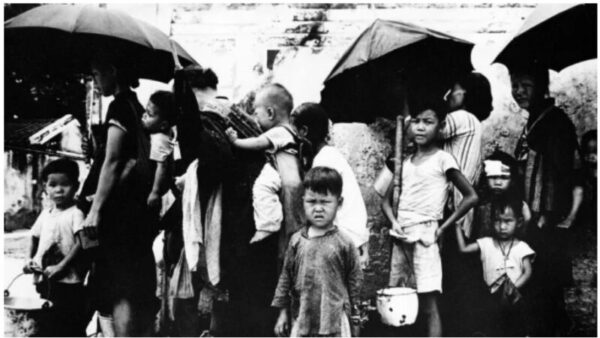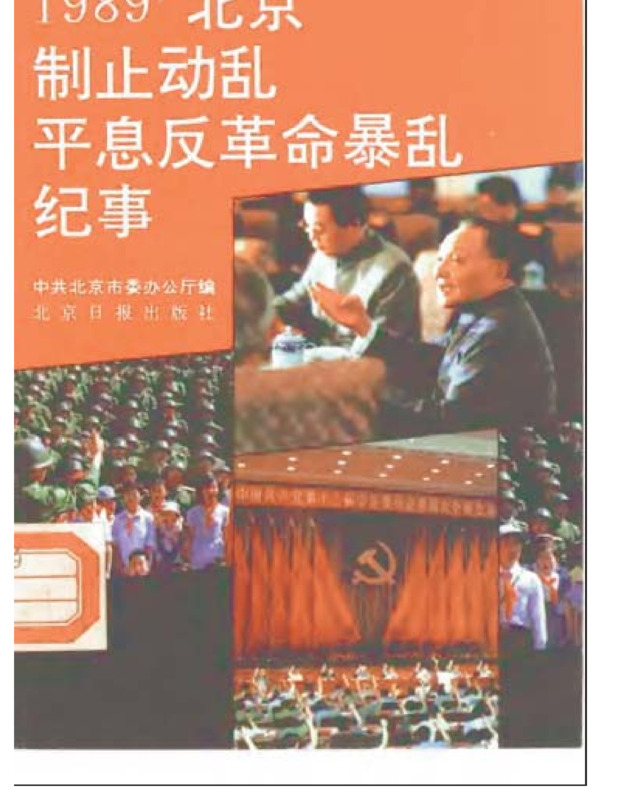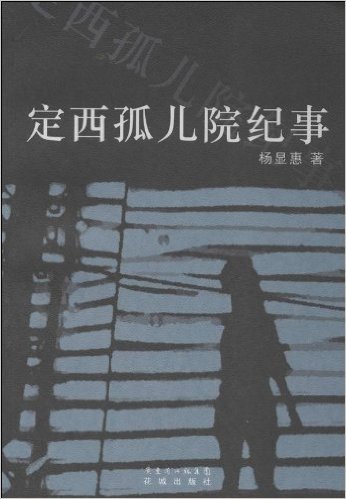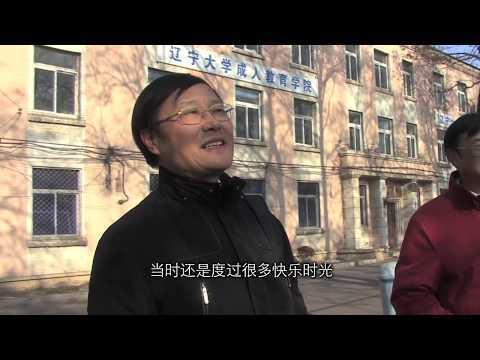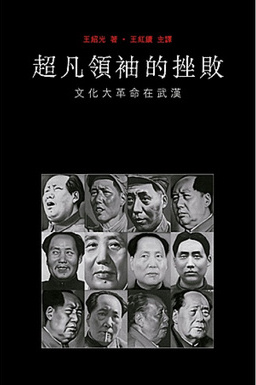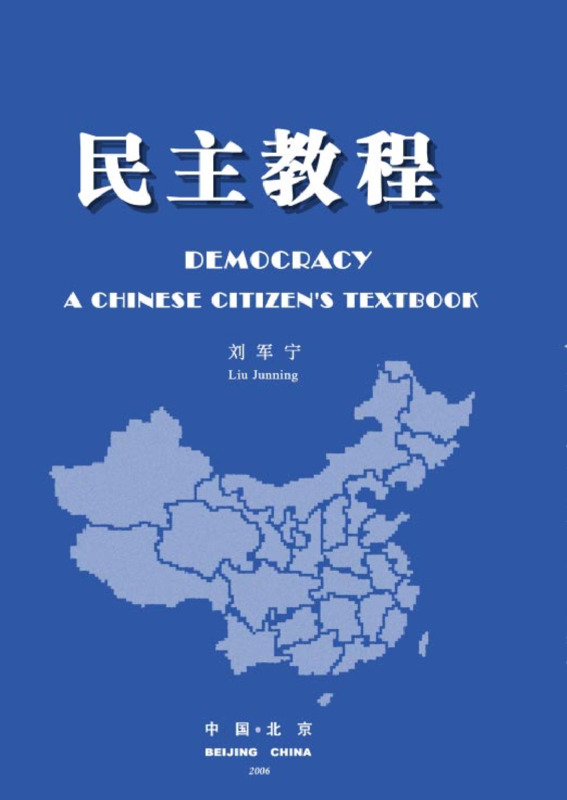Explore the collection
Showing 215 items in the collection
215 items
Book
A Non-governmental White Paper on the June Fourth Massacre
At the turn of the spring and summer of 1989, democratic protests broke out in Beijing and other cities in China. In the early hours of June 4, the Chinese government dispatched troops to suppress the movement. In 2009, on the occasion of the 20th anniversary of the June 4th Incident in 2009, some participants in the movement jointly released the "Unofficial White Paper on the June 4th Incident". The book has 48 pages and a large number of illustrations.
This white paper attempts to provide a complete political background and legal analysis of the events based on reports from Chinese newspapers, radio and television stations at the time, as well as memoirs and interviews that have been published over the past 20 years. Participants in this book believe that the Chinese government has not conducted a comprehensive investigation and objective evaluation of the June 4th Incident, and has long blocked relevant information and prohibited private investigation and discussion of the matter. The report is called a "white paper" to emphasize its rigor and normative nature.
Participants in this book include Hu Ping, Yan Jiaqi, Wang Juntao, Wang Dan, Yang Jianli and others. The book was written by Li Jinjin, a doctor of law.
Book
Anthology of Essays by Zhang Zuhua, An
Zhang Zuhua is an independent scholar in China. In his early years, he served as a member of the Standing Committee of the Central Committee of the Communist Youth League, Secretary of the Youth League Committee of the Central State Organs. Later, he worked at a private research institute, mainly engaged in political modernization, the theory and practice of constitutional democracy, and China's political reform. He was a key participant in China's Charter 08 in 2008. This book is a collection of his political essays.
Book
At the Crossroads of History
This book is Gao Hua's next masterpiece after *How the Red Sun Rose*. It entails a selection of papers published by the author between 1988 and 2004, covering the fields of Republican history, Communist Party history, and contemporary Chinese history. It captures the historical interaction between the present and the past. Gao reflects deeply on the far-reaching Chinese Communist Revolution. With a rigorous and empirical research methodology, he sketches a complex and colorful picture of history, presenting the multiple facets of twentieth-century China's history.
Book
Blood Chronicle: From the Anti-Rightist Movement to the Cultural Revolution
The author of this book, Kong Lingping, who lives in Chongqing, was labeled as a rightist in his youth. He has lived through all the political movements of the Chinese Communist Party (CCP). This book is based on the author's own experience, from birth to 2009.
Book
Blood Letters: The Untold Story of Lin Zhao, A Martyr in Mao's China
This book is the brainchild of Prof. Lian Xi of Duke University, U.S.A. In March 2018, it was published in English by Basic Books in the U.S.A. In 2021, it was published in Chinese by Taiwan Business Press. Based on a large amount of historical materials as well as first-hand interviews, this book reconstructs Lin Zhao's life. It depicts the political development before and after the birth of New China, and presents the resilient will and beliefs of intellectuals in this era.
To purchase this book, please visit [the publisher](https://www.hachettebookgroup.com/titles/lian-xi/blood-letters/9781541644229/?lens=basic-books), or a bookseller.
Book
Blood Myths
In 1984, CCP’s reformist leader Hu Yaobang sent more than 1,300 officials to Dao County in Hunan Province to investigate mass killings that occurred in 1967 during the Cultural Revolution. Tan joined the team for part of its stay in Dao County. As a writer for a state publication, Tan gained a number of documents unearthed during the investigation and conducted interviews, based on which he wrote an article of 100,000 characters. His editors, however, said it could not be published because the political climate was changing with the start of the "bourgeois liberalization" campaign, which eventually led to Hu's fall. Tan decided to continue his investigation and traveled to Dao County many times to do follow-up interviews. Tan collected millions of words of information, including nearly 400 case studies, and interviewed almost all the key figures who agreed to be interviewed.
In 2010, Tan published Blood Myths: the 1967 Mass Killings in Dao County, Hunan Province during the Cultural Revolution through Hong Kong-based Tianxingjian Publishing House. This nine-volume work consists of 83 chapters and more than 500,000 characters. According to Tan's investigation, in the 66 days from August 13 to October 17, 1967, more than 9,000 villagers, including women and children, were killed or forced to commit suicide because they were wrongly accused of engaging in counter-revolutionary activities. More than 14,000 people were directly implicated in the killings, including 426 state cadres, 2,767 village officials, and 3,880 Communist Party members. Unlike works on the history of the Cultural Revolution previously published in China that focused on the persecution of intellectuals, this book presents the systematic violence suffered by villagers. The book contains not only the words and stories of a large number of those killed, but also those of the killers and others involved, enabling readers to develop an all-encompassing, multi-faceted understanding of this tragic event. According to Yang Jisheng (see separate entry), most of the information about the mass killings currently circulating at home and abroad originated from Tan's investigations and interviews.
The book was reprinted in 2011 and a revised edition was published in 2016, expanding the book to 700,000 words. In 2017, Oxford University Press published <i><a href="https://global.oup.com/academic/product/the-killing-wind-9780190622527?cc=us&lang=en&">The Killing Wind: A Chinese County's Descent into Madness during the Cultural Revolution</a></i>, an edited and condensed (with Tan's permission) version of the book by Stacy Mosher and Guo Jian.
Book
Bloodshed in Beijing and China: Hong Kong Wen Wei Bao 1989 Special Edition
During the pro-democracy movement in 1989, Hong Kong journalists gathered in Beijing, including Wen Wei Bao"" reporters. This book is a special issue of *Wen Wei Bao* for 1989. It contains a large number of photographs, all taken by its reporters. "After the June 4 massacre, the Communist Party of China (CCP) settled scores with the editorial team of Hong Kong's "Wen Wei Bao," replacing the president, editor-in-chief, and deputy editors-in-chief. The editor-in-chief at the time, Jin Yaoru, later moved to the United States and publicly announced his resignation from the party.
Film and Video
Care and Love
This film records the story of Liu Xianhong, a woman from rural Xingtai, Hebei, who contracted AIDS through a blood transfusion in the hospital and decided to publicly disclose her identity and sue the hospital. After fighting in the courts, she finally received compensation. This documentary demonstrates the surging awareness of civil rights in rural China at the grassroot level through depicting the experiences of several families and the concerted efforts of patients to form “care” groups to collectively defend their civil rights. Due to public awareness, media intervention, and legal aid, the government also introduced new policies to improve the situations of patients and their families.
This film is in Chinese with both English and Chinese subtitles.
Book
Chen Cheng's Memoirs—The War between the Nationalists and Communists
Mr. Chen Cheng (courtesy name Cixiu; alias Shisou) served as the commander of the KMT army, commander-in-chief of the group army, commander-in-chief of the theater of operations, and chief of the general staff of the KMT. After the defeat of the Kuomintang army in Taiwan, Chen Cheng served the Administrative Yuan as Vice President of the Kuomintang. The volumes associated with *Chen Cheng's Memoirs* were published by Taiwan's National Museum of History in 2005. The series is divided into six volumes: *The Northern Expedition and the Chaos* (one volume), *The War between the Nationalists and Communists* (one volume), *The War of Resistance Against Japanese Aggression* (two volumes), and ***The Construction of Taiwan*** (two volumes). The first volume, *The War between the Nationalists and Communists* includes three parts: *Suppressing the Communists - Memories of the Military*, *Summary of Mr. Chen's Words and Actions*, and *Correspondence and Telegrams*. The book has original historical materials related to the five sieges and the counter-insurgency. In particular, this is the first time that important historical materials regarding the correspondence between Chiang Chung-cheng (courtesy name of Chiang Kai-shek) and Cixiu have been made public.
Book
Chen Xitong's Personal Account - It's Hard to Fuse the Truth with All the Words
The book is a transcript of conversations between Yao Jianfu, a well-known Chinese scholar, and Chen Xitong, who was released on medical parole between 2010 and 2012. Chen Xitong was the mayor of Beijing during the 1989 student movement and was considered one of the main suppressors of the movement. In 1998, Chen was sentenced to 16 years in prison on charges of "embezzlement." In 2004, he was released on medical parole. In this book, Chen Xitong tells his version of the June 4 Tiananmen massacre. He denies not only that he was the head of the "June 4 Martial Law Command" and also claims he is innocent of the charge corruption.
Book
Chronicle of Jiabiangou
Jiabiangou was a labor reform farm in Jiuquan County, Gansu Province, where "rightist" prisoners were held. October 1957, nearly 3,000 educated people were detained there. In October 1961, when the higher-ups corrected the "left-leaning" mistakes of the Gansu Provincial Party Committee and began repatriating the rightist prisoners, less than half had survived.
Writer Yang Xianhui spent five years interviewing more than a hundred people and brought to light the truth that had been sealed for more than forty years. Originally published by Tianjin Ancient Books Publishing House in 2002, this book also includes other short and medium-sized stories by Yang Xianhui.
Book
Chronicle of Rural Remediation of Communes in Difficult Times
Two years after the Great Famine of 1958, the government sent "rectification" work teams of about 10,000 people to many of the most severely affected provinces, such as Henan, Shandong, Anhui, Guizhou, Sichuan, Qinghai, and Xinjiang. The author of this book, Hui Wen, had just graduated from Renmin University of China and was assigned to work at the Institute of Modern History of the Chinese Academy of Sciences for half a year. In December 1960, he was sent to Jianyang, Sichuan to participate in the whole society. The book records what he saw during this period. heard.
Hui Wen came into contact with a large number of farmers and witnessed the situation of rural areas on the front line. Each article in the book records the date, place and passage of writing at that time, which adds to the history and authenticity of the book. After the Cultural Revolution ended in 1976, the author compiled these records into a volume. Through a case study of Jianyang, this book uses specific historical details to reflect the relationship between the Great Leap Forward policy and the Great Famine.
After the book was completed, due to China's strict publishing censorship system, the author did not submit it to a publishing organization and chose to circulate it among friends first. Later, he handed the manuscript to the website "China's Great Famine Archives," and this historical record was made public to the world.
Book
Chronicle of the 1989 Counter-Revolutionary Rebellion in Beijing
Published in 1989 by the Beijing Daily News, this book is the Chinese government's official account and presentation of the June Fourth Incident. Officially, it describes the June 4 Incident as an upheaval and even stigmatizes it as a counter-revolutionary riot. Some of the accounts presented here need to be judged against other sources.
Book
Chronicle of the Dingxi Orphanage
After the disaster in Dingxi Prefecture, which was the hardest-hit area of Gansu Province during the 1958-1960 famine, a children's welfare institution was urgently set up in Dingxi Prefecture to take in hundreds of orphans. During the same period, children's welfare centers or "kindergartens" were set up in all counties and towns in Dingxi Prefecture, as well as in the people's communes in the hardest-hit counties. These children's welfare centers, large and small, housed about 5,000 orphans. On the basis of faithful historical facts and statements by the parties concerned, this book brings tragic scenes of starvation and death before people's eyes using straightforward description, documentary language, and a down-to-earth tone of voice.
Film and Video
Chronicle of Western Liaoning, A
In 1959, in the desolate Lingyuan area in the western part of Liaoning Province, a group of intellectual rightists from the Shenyang University arrived. There, they were to labor and be reformed alongside criminal prisoners in the prison, while digging mines to build railroads. How did the Communist Party reform the intellectuals? What kind of encounters did these rightist intellectuals go through? Hu Jie's camera restores this history.
Book
Collected Papers of Wu Yisan (1)
Writer Wu Yisan is the founder of Hong Kong's May 7 Society, an organization dedicated to the collection, research and publishing of everything related to the anti-rightist campaign in 1957,to restore and present the truth about a period of history characterized by severe persecution of remedial intellectuals. Over the years, Mr. Wu has devoted himself to compiling The Dictionary of Names of 1957 Victims. As the Chief Editor of The Hong Kong May 7 Society Publishing House, he also published The Biography of the Rightists of the May 7.
This book is a collection of his political papers, comprising more than 50 published and unpublished essays primarily written between 2004 and 2009, criticizing CCP from various perspectives, including history, current affairs, and culture.
Book
Collected Papers of Wu Yisan (2)
Writer Wu Yisan is the founder of Hong Kong Five-Seven Society, an organization established in 2007 and dedicated to the collection, research and publishing of everything related to the Anti-Rightist campaign in 1957, to restore and present the truth about a period of history characterized by severe persecution of intellectuals. Over the years, Mr. Wu has devoted himself to compiling *[The Dictionary of Names of 1957 Victims](https://minjian-danganguan.org/collection/1957%E5%B9%B4%E5%8F%97%E9%9A%BE%E8%80%85%E5%A7%93%E5%90%8D%E5%A4%A7%E8%BE%9E%E5%85%B8)*. As the Chief Editor of The Hong Kong Five-Seven Society Publishing House, he also published *The Biographies of the 1957 Rightists* and *[New Biographies of the 1957 Rightists](https://minjian-danganguan.org/collection/%E2%80%9C%E4%BA%94%E4%B8%83%E2%80%9D%E5%8F%B3%E6%B4%BE%E5%88%97%E4%BC%A0%EF%BC%88%E4%B8%8A%EF%BC%89)*.
This book is a collection of Wu’s political essays, including nearly one hundred of his published and unpublished essays and speeches between 1999 and 2017, including historical and current affairs analyses, with an emphasis on commentaries of persecuted intellectuals and political dissidents. These people are often called "traitors of China (han jian)" by CCP, but Wu Yisan argues that the CCP is the real traitor that betrays the country and its people.
Our archive also hosts another anthology of his, *[Is Chen Yi a Good Comrade](https://minjian-danganguan.org/collection/%E6%AD%A6%E5%AE%9C%E4%B8%89%E6%94%BF%E8%AE%BA%E6%96%87%E9%9B%86%EF%BC%881%EF%BC%89)*?
Official Documents
Declassified Files of the Canadian Government on the June Fourth Incident
This document, declassified in January 2015, contains a 1989 diplomatic memorandum from the Canadian Embassy in Beijing. It describes the circumstances surrounding the June 4 massacre as they were known to officials at the Canadian embassy.
The documents, declassified by the National Library and Archives of Canada, show the Canadian government's concern about the invasion of the embassy by Chinese troops. The documents also describe the crackdown in Beijing and how the troops killed citizens.
Book
Defeat of an Extraordinary Leader: The Cultural Revolution in Wuhan, The
This book covers the history of the Cultural Revolution in Wuhan and related analysis. Wang Shaoguang completed his doctoral dissertation of the same name (in English) in 1989, and the Chinese version of his abridged dissertation, *Rationality and Madness: The Masses in the Cultural Revolution,* was published by Oxford University Press in 1993. a Chinese version was published by The Chinese University of Hong Kong Press in 2009. Taking the Cultural Revolution in Wuhan as the main axis, the author interviewed dozens of participants in the Cultural Revolution, utilizing a large amount of original materials published during the Cultural Revolution. Combining all of this with his own personal experience, he profoundly reveals the masses' participation in the Cultural Revolution during winters, forms and laws, the mechanism of advancement and retreat, and its relationship to the general situation of the whole country.
Book
Democracy Curriculum
Written by Chinese liberal intellectual Liu Junning, this book circulated underground in 2006. The book parses the fundamentals of democracy as well as historical experience. It was quickly banned in China.

